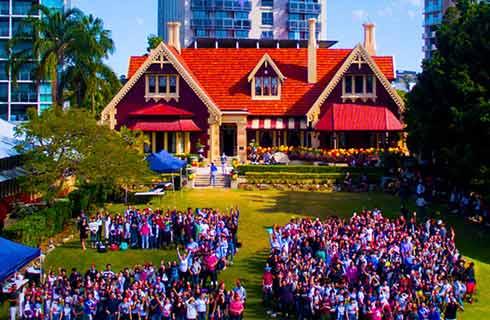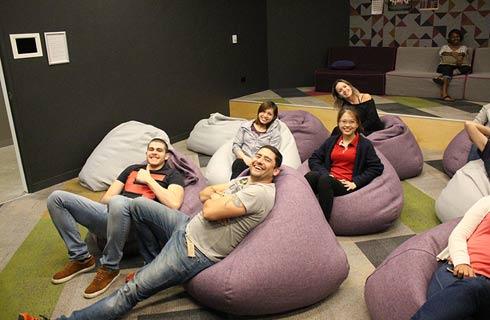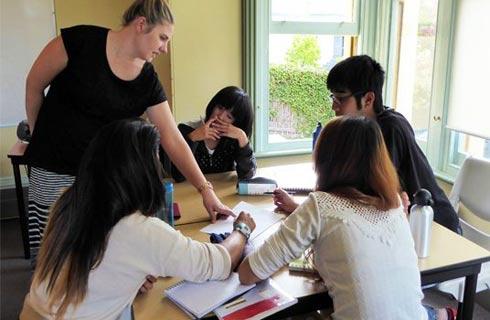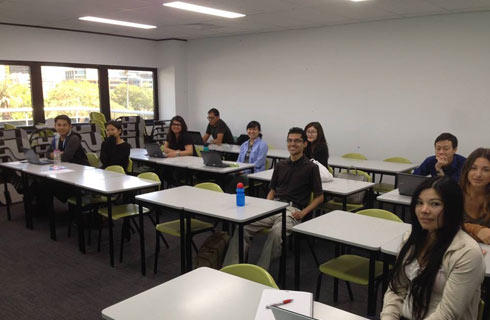国际学生入学条件
Hold a baccalaureate degree from an accredited college or university, or have done work equivalent to that required for such a degree.
Show promise of ability to pursue advanced study and research, as judged by the student’s scholastic record.
Have adequate preparation to enter graduate study in the chosen field. Have at least a 2.75 (2.00=C) undergraduate grade point average.
For review and decision purposes you are required to upload an unofficial copy of your transcript(s) in the application. We require one copy of the scanned transcript from each undergraduate and graduate institution that you attended. Include any transcripts, mark sheets, or grade reports, and any certificates, degrees, diplomas, or statements of graduation or completion from each college or university attended, regardless of the length of attendance, whether or not courses were completed, and whether or not you believe the record will affect your admission or transfer of credit.
Internet Based TOEFL- 75
IELTS - 6.0
Duolingo - 120
Hold a baccalaureate degree from an accredited college or university, or have done work equivalent to that required for such a degree.
Show promise of ability to pursue advanced study and research, as judged by the student’s scholastic record.
Have adequate preparation to enter graduate study in the chosen field. Have at least a 2.75 (2.00=C) undergraduate grade point average.
Applicants to programs in the College of Engineering and Applied Science must have a 3.00 (3.00=B) undergraduate grade point average. Note: applicants who cannot meet this undergraduate standard may still secure regular admission if they have completed 9 semester hours of relevant graduate course work with at least a 3.25 grade point average.
展开
IDP—雅思考试联合主办方

雅思考试总分
6.0
- 雅思总分:6
- 托福网考总分:75
- 托福笔试总分:537
- 其他语言考试:Duolingo - 120
CRICOS代码:
申请截止日期: 请与IDP联系 以获取详细信息。
课程简介
Time is fundamental to Earth science. Geochronology data are essential for determining the timing, duration, and rates of Earth processes and events, and are increasingly required to perform modern, interdisciplinary Earth science research. The field of geochronology is rapidly evolving as the precision and spatial resolution of existing methods improve, and as new techniques are developed. There is growing demand for scientists who can understand the strengths and limitations of geochronology datasets, and effectively interpret them.<br><br>The Department of Geological Sciences includes faculty with diverse geochronology expertise, and labs that provide opportunities for students to gain experience preparing samples for geochronologic analysis, acquiring analytical data, and interpreting geochronologic datasets. Relevant facilities in GEOL include the (U-Th)/He Geochronology Lab (or CU TRaIL) directed by Professor Becky Flowers that contains an Alphachron He extraction line and Agilent 7900 quadrupole ICPMS, and the Electron Microprobe lab with a new JEOL 8230 probe for mineral characterization and monazite U-Pb dating directed by Professor Kevin Mahan. INSTAAR facilities include the Cosmogenic Preparation Lab directed by Professors Bob Anderson and Giff Miller, the ICPMS lab that contains a Thermo Finnigan Element2 sector field ICP-MS directed by Professor Tom Marchitto, and the Amino Acid Geochronology lab with two Agilent HPLCs, directed by Professor Giff Miller. Supporting facilities for mineral characterization include the Raman spectroscopy facility in GEOL.
展开







 预科
预科 奖学金
奖学金 实习机会
实习机会 在校学习
在校学习 跨境学习
跨境学习 校园授课-线上开始
校园授课-线上开始 在线/远程学习
在线/远程学习














 劳伦森大学
劳伦森大学

 劳伦森大学
劳伦森大学

 阿卡迪亚大学
阿卡迪亚大学

 阿卡迪亚大学
阿卡迪亚大学

 阿卡迪亚大学
阿卡迪亚大学

 北阿尔伯塔理工学院
北阿尔伯塔理工学院









 美国
美国